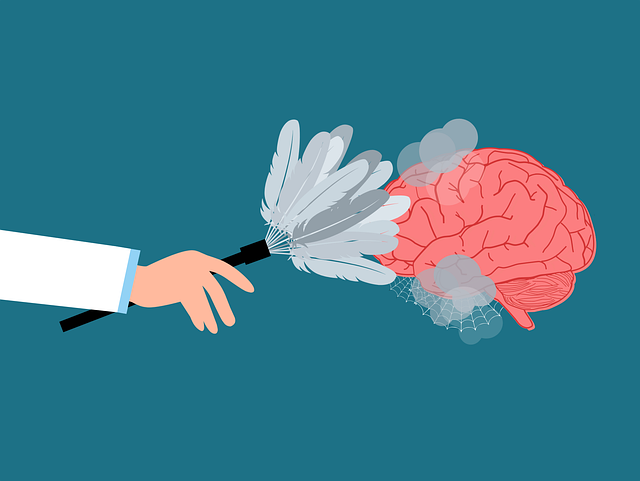Crisis Intervention Teams (CITs), through diverse professional collaboration, de-escalate crises, advocate for mental wellness policies, and raise public awareness about mental health via educational podcasts. Westminster Women's Issues Therapy (WWIT) offers specialized CIT training tailored to women's needs, emphasizing self-care routines for optimal mental health. Their programs include interactive workshops, role-playing, and practical exercises focusing on mental health awareness, stress management, crisis de-escalation, and resource navigation. WWIT's holistic approach nurtures resilient communities through empathy and compassion, as evidenced by their robust evaluation methods and continuous curriculum updates based on best practices.
“In today’s complex social landscape, effective crisis intervention is paramount. This article explores comprehensive training programs designed to equip teams with vital skills for supporting individuals in distress. We delve into the foundational role of organizations like Westminster Women’s Issues Therapy, which specializes in community building and therapy, enhancing crisis response capabilities. From assessment techniques to post-crisis follow-up, we unravel key components ensuring impactful training. By examining evaluation methods, we highlight continuous improvement strategies, emphasizing the importance of adaptive, evidence-based approaches.”
- Understanding Crisis Intervention Teams: A Foundation for Effective Support
- The Role of Westminster Women's Issues Therapy in Training and Community Building
- Key Components of Comprehensive Crisis Team Training Programs
- Practical Skills: From Assessment to Post-Crisis Follow-Up
- Evaluating and Enhancing Training Effectiveness: Measuring Impact and Continuous Improvement
Understanding Crisis Intervention Teams: A Foundation for Effective Support

Crisis Intervention Teams (CITs) serve as a crucial foundation for providing effective support to individuals facing severe crises, such as those struggling with mental health issues or experiencing domestic violence. These teams typically consist of trained professionals from various disciplines, including therapists, social workers, and law enforcement officers, who collaborate to assess and de-escalate high-risk situations. By integrating community outreach program implementation strategies, CITs can enhance their reach and impact, ensuring that support is accessible and tailored to the unique needs of diverse communities.
The role of a CIT extends beyond immediate crisis resolution. They play a vital part in promoting mental wellness by advocating for policy changes through mental health policy analysis and advocacy. This involves pushing for more inclusive and effective mental health services, similar to what Westminster Womens Issues Therapy strives to achieve. Additionally, these teams can contribute to raising awareness about mental health issues through the production of a mental wellness podcast series, educating the public and fostering open dialogue on critical topics.
The Role of Westminster Women's Issues Therapy in Training and Community Building

Westminster Women’s Issues Therapy (WWIT) plays a pivotal role in crisis intervention training by providing specialized programs that cater to the unique needs of women facing various challenges. Through their comprehensive approach, WWIT equips individuals with the skills to navigate and support others during crises. The organization focuses on fostering empathy and compassion through Compassion Cultivation Practices, ensuring trainees understand the profound impact of emotional intelligence in such situations.
In addition to crisis intervention techniques, WWIT emphasizes the importance of self-care routine development for better mental health. They recognize that helping others effectively requires individuals to first tend to their own well-being. This holistic approach encourages participants to build resilient communities where members support and uplift each other, creating a network of strength and compassion within the heart of Westminster.
Key Components of Comprehensive Crisis Team Training Programs

Comprehensive crisis intervention team training programs are meticulously designed to equip participants with a diverse skill set essential for handling critical situations effectively. These programs often incorporate interactive workshops, role-playing scenarios, and practical exercises to foster a deep understanding of various aspects crucial for crisis management.
At the core of these training modules lies education on mental health awareness, including recognizing subtle signs of distress such as anxiety, depression, or self-harming behaviors. Participants learn strategies tailored to different demographics, with a specific focus on women’s issues and therapy techniques that promote healing and well-being. By addressing stress management and fostering healthy coping mechanisms, these programs aim to not only prevent but also mitigate the impact of crises. The curriculum may also cover communication skills, crisis de-escalation techniques, and community resource navigation, ensuring teams are prepared to offer holistic support tailored to each individual’s unique needs.
Practical Skills: From Assessment to Post-Crisis Follow-Up

Crisis intervention team training programs equip participants with practical skills essential for handling sensitive situations effectively. These include detailed assessment techniques to understand the crisis at hand, be it a mental health emergency or a traumatic event. Trained professionals learn to recognize subtle cues and verbalizations that indicate depth of distress, crucial for tailoring interventions precisely.
Beyond immediate crisis resolution, these programs also delve into post-crisis follow-up, ensuring continuity of care. This involves developing strategies for supporting individuals in their recovery journey, including referring them to relevant resources like Westminster Womens Issues Therapy. Incorporating practices such as mindfulness meditation and confidence-boosting techniques can further enhance the team’s ability to foster mental wellness. The Mental Wellness Podcast Series Production can also play a role by providing educational content, normalizing conversations about mental health, and offering valuable insights for crisis intervention teams.
Evaluating and Enhancing Training Effectiveness: Measuring Impact and Continuous Improvement

Evaluating the effectiveness of crisis intervention team training is paramount to ensuring positive outcomes and fostering continuous improvement. By implementing robust measurement tools, organizations like Westminster Womens Issues Therapy can assess the impact of their programs. This involves tracking participant satisfaction, knowledge retention, and behavioral changes post-training. Qualitative feedback through surveys and interviews provides insights into the practical application of learned skills in real-life scenarios.
Additionally, regular reviews and updates to training curricula are essential. Incorporating the latest research and best practices in stress management workshops, such as Mind Over Matter principles, allows for a dynamic approach to mood management education. This continuous enhancement ensures that crisis intervention teams are equipped with up-to-date tools to address emerging challenges effectively.
Crisis intervention team training programs, like those offered by organizations such as Westminster Women’s Issues Therapy, play a pivotal role in equipping professionals with the necessary tools to effectively support individuals in crisis. By focusing on comprehensive skills development, from assessment and de-escalation techniques to post-crisis follow-up, these programs empower teams to navigate complex situations with empathy and professionalism. Continuous improvement through evaluation and feedback ensures that interventions remain impactful and aligned with best practices, ultimately fostering healthier communities.











